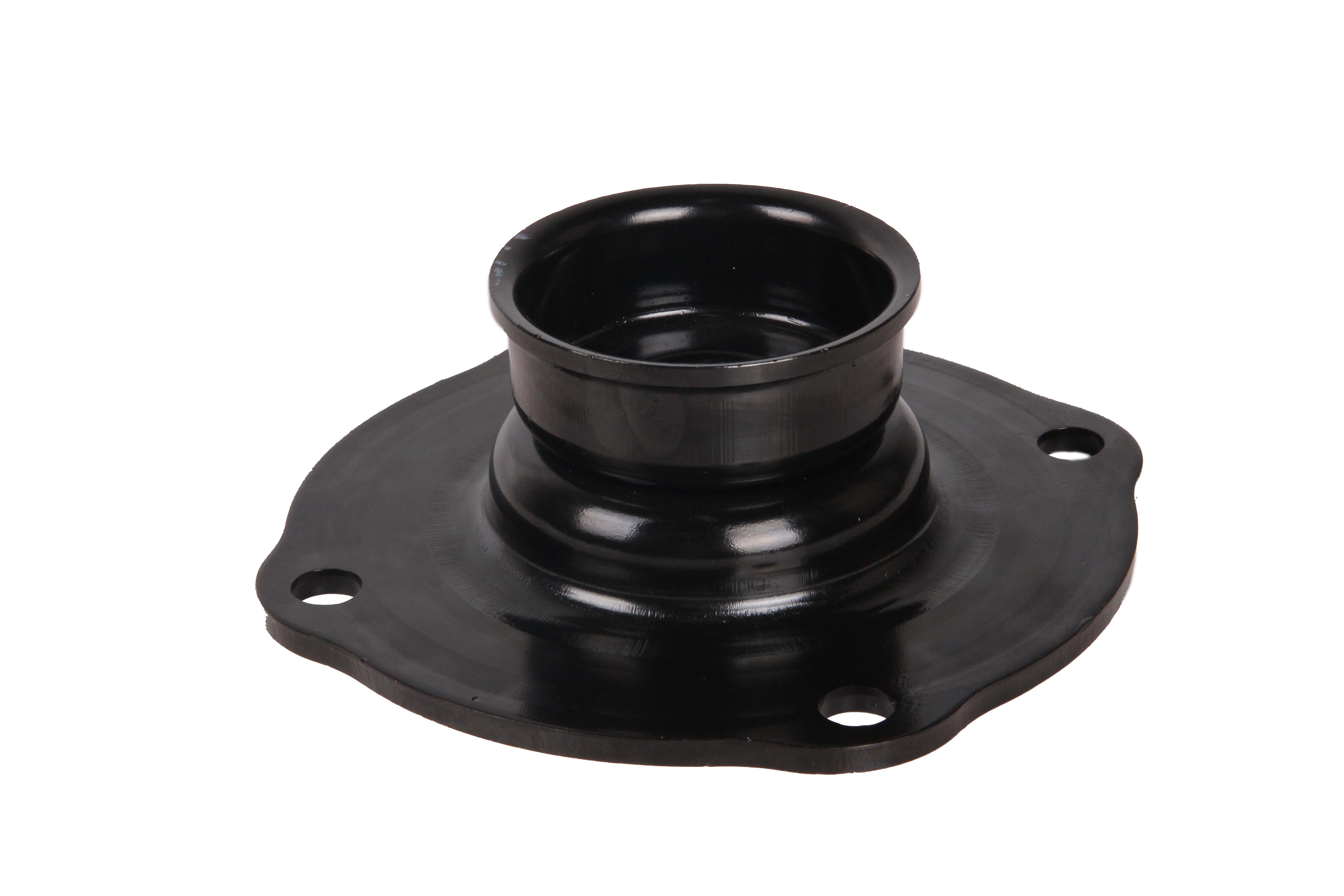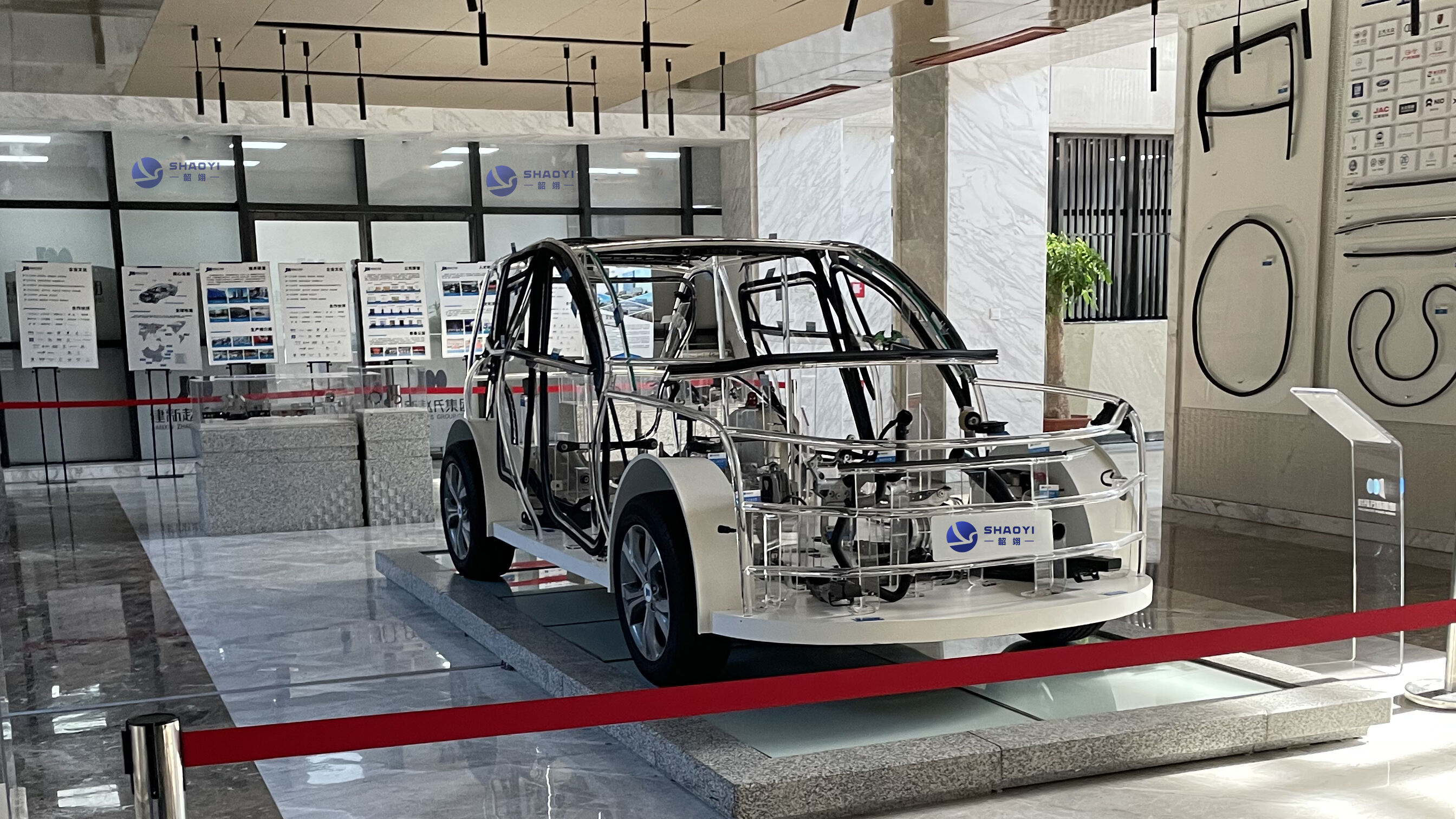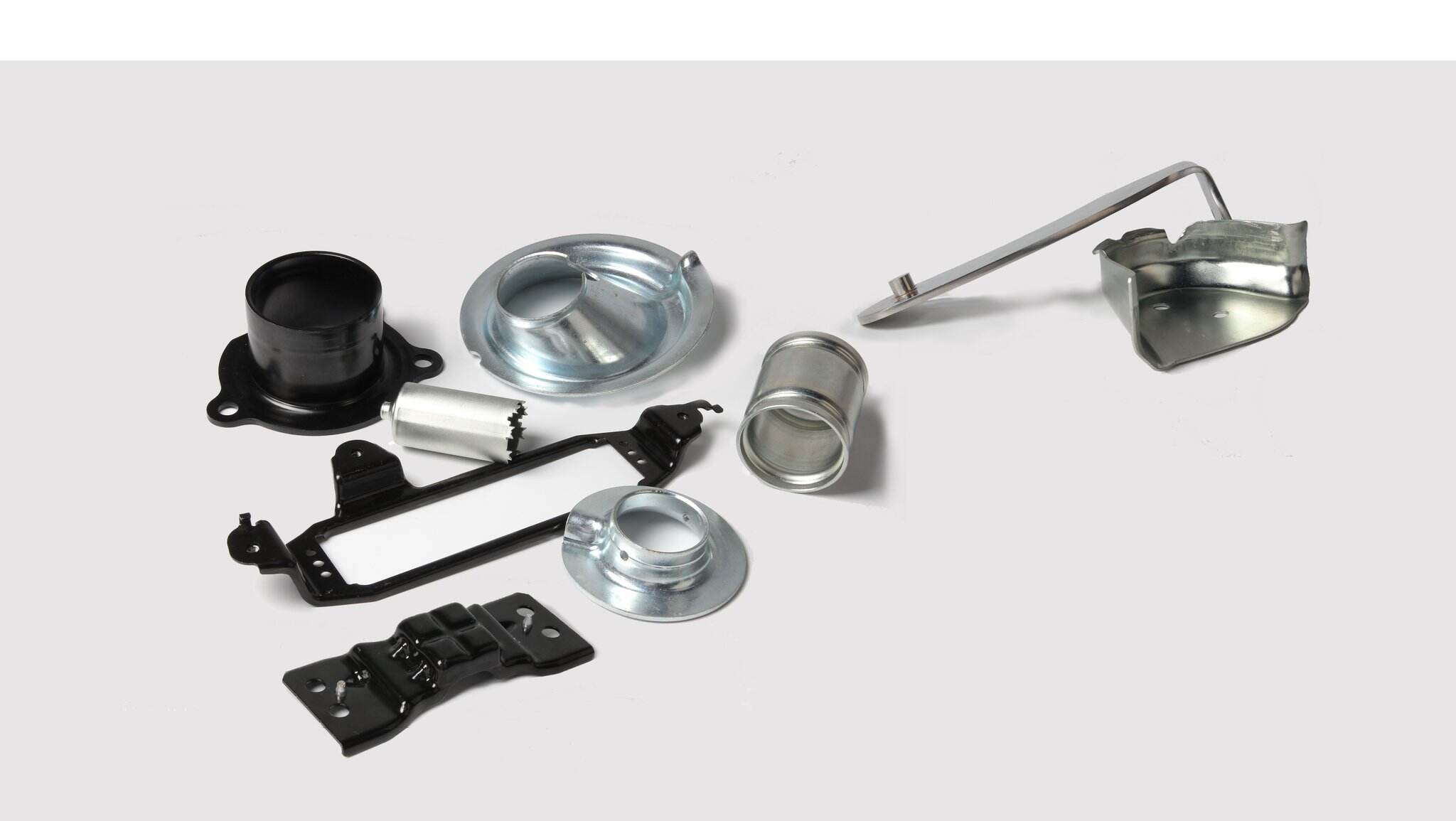What OEMs Overlook When Choosing Automotive Stamping Suppliers
Finding the Right Automotive Stamping Partner in 2025
The High Stakes of Supplier Selection
When you consider the engineering behind every modern vehicle—especially with the rapid rise of electric vehicles (EVs) and the push for lighter, more efficient designs—you’ll notice that high-quality metal stamping is absolutely essential. Why? Because components like battery housings, lightweight chassis, and intricate safety structures all depend on precision-stamped metal parts. If you choose the wrong supplier, the result isn’t just a minor inconvenience. It can mean compromised safety, inconsistent performance, and spiraling production costs.
- Vehicle safety relies on the strength and exact fit of stamped parts.
- Performance is tied to lightweighting and advanced materials, both made possible by innovative stamping techniques.
- Production costs and timelines are directly affected by supplier reliability and process efficiency.
With global stamping operations now spanning North America, Europe, and Asia, the search for the right partner can feel overwhelming. The stakes are even higher as OEMs respond to stricter emission standards and the growing demand for EVs—both of which require advanced automotive metal stamping solutions.
According to market research, the global automotive metal stamping market is projected to reach USD 143.4 billion by 2034, fueled by rising vehicle production, increasing EV adoption, and government policies supporting lightweight materials.
Why This Review Matters
Sounds complex? It is. OEMs and procurement managers can’t afford to overlook the impact of supplier choice. This review cuts through the noise, offering a data-driven look at the top automotive stamping suppliers for 2025. Our goal is to help you make informed, confident decisions—whether you’re building the next generation of EVs or refining your existing production lines. By focusing on proven leaders in metal stamping automotive technology, you’ll be better equipped to meet tomorrow’s challenges and seize new opportunities in a rapidly evolving industry.

How We Ranked the Top Stamping Suppliers?
Our Evaluation Criteria
When you’re tasked with sourcing automotive stamping suppliers, the pressure is real. How do you separate the industry leaders from the rest? Imagine sorting through dozens of companies, each claiming to offer the best in quality, speed, and innovation. To help you make an informed decision, we developed a transparent, data-driven methodology that reflects the real-world demands of today’s automotive manufacturing.
Our ranking process is built around five core criteria—each essential for ensuring your supplier can deliver on both current and future project needs. Here’s how we break it down:
-
Quality Certifications (IATF 16949)
You wouldn’t trust a critical component to a supplier without proven quality systems. We prioritize companies with IATF 16949 certification, which is the global standard for automotive quality management. This ensures consistent quality throughout the entire automotive metal stamping process and helps prevent costly defects and recalls. We also look for ISO 9001 and other relevant certifications, but IATF 16949 is non-negotiable for top-tier suppliers. -
Material Expertise (AHSS, Aluminum)
As lightweighting and electrification reshape the industry, suppliers must demonstrate deep knowledge of advanced high-strength steels (AHSS) and aluminum. We assess their experience with challenging alloys and their ability to manage issues like springback, thinning, and formability—crucial for EV battery housings and structural parts. Companies that excel often invest in specialized tooling and advanced automotive stamping die technologies for these materials. -
Technological Capabilities (Progressive Die, Deep Drawing)
The best stamping suppliers are defined by their technical prowess. We examine whether they offer progressive die stamping, deep drawing, hot stamping, and in-die assembly. For instance, automotive components progressive stamping is vital for high-volume, complex parts with tight tolerances. Suppliers with in-house tool and automotive stamping dies design can adapt quickly to new model launches and custom requirements. -
Project Scope & Scalability
Can the supplier handle both prototype runs and full-scale production? We score companies based on their ability to scale up quickly, support multiple programs, and integrate with your supply chain. This includes evaluating their press capacity, automation investments, and track record with large OEM contracts. -
Industry Reputation & Client Feedback
Numbers don’t tell the whole story. We gather insights from client case studies, independent reviews, and regulatory ratings. A supplier’s reputation for transparency, proactive communication, and on-time delivery is just as important as technical specs. Before finalizing our rankings, we also check for any red flags in compliance history or unresolved quality issues.
Why Trust Our Rankings?
Sounds thorough? That’s the point. By combining hard data with real-world feedback, our framework gives you a reliable lens for evaluating automotive stamping die manufacturers. Whether you’re sourcing for next-gen EVs or established models, this approach ensures you’re not just buying parts—you’re investing in a partnership that can sustain your quality, cost, and innovation goals.
Up next, we’ll take a closer look at how these criteria play out in practice, starting with a supplier renowned for its integrated solutions and precision engineering.

Shaoyi Metal Parts Supplier
When you’re searching for a supplier who can deliver both precision and scalability, it’s easy to get lost in a sea of technical jargon and bold claims. But what if you could partner with a company that not only promises but consistently delivers integrated solutions across the entire custom automotive metal stamping spectrum? Imagine a partner who transforms your CAD drawings into high-quality automotive metal stamped parts—rapidly, reliably, and at scale.
Core Capabilities & Specializations
Shaoyi Metal Parts Supplier stands out by offering a fully integrated manufacturing experience. You’ll notice their approach covers every stage, from early design validation to mass production. Here’s what sets them apart:
- Full-Service Manufacturing: Shaoyi manages the entire process in-house—covering mold design, CNC machining, stamping, welding, and assembly. This one-stop model ensures total control over quality and timelines, minimizing the risk of delays or inconsistencies.
- Advanced Engineering Support: Their engineering team uses CAE simulations to optimize designs before tooling is produced, helping you avoid costly mistakes and ensuring manufacturability from the start.
- Certified Quality: With IATF 16949 certification, Shaoyi meets the highest global standards for automotive quality management, a must-have for any supplier in this sector.
- Material Versatility: Whether you need traditional steel, advanced high-strength steel, or lightweight aluminum, Shaoyi’s expertise covers the full range of metal stampings for automotive components.
- Scalable Production: From prototypes (as few as 1-50 pieces) to low- and high-volume runs (up to 5,000+ pieces), their flexible manufacturing lines adapt to your project’s needs—no matter the size or complexity.
Ideal Use Cases
Not every supplier is equipped to handle the unique demands of today’s automotive industry. Shaoyi’s strengths shine in scenarios such as:
- Developing new EV platforms where rapid prototyping and fast design iterations are critical
- Launching lightweight chassis or battery enclosures that require both steel and aluminum expertise
- Managing complex assemblies with tight tolerances and stringent OEM requirements
- Projects where a single point of contact—from DFM feedback to final delivery—streamlines communication and accountability
For companies seeking a partner that combines advanced technology with cost-efficiency, Shaoyi stands out among automotive stamping suppliers. Their track record with global OEMs like Audi, BMW, and Tesla demonstrates their ability to deliver reliable results, even for the most demanding programs.
Pros & Cons
Pros
- Cost-effective precision for complex or high-tolerance parts
- Strong engineering support, especially for EV and lightweighting initiatives
- Integrated services from tooling to production, reducing lead times and risk
- Flexible production volumes—ideal for both prototypes and mass production
- Proven track record with major international automotive brands
Cons
- Based in China, which may require additional logistics planning for North American or European clients
- Time zone differences can impact real-time communication if not carefully managed
Ultimately, Shaoyi’s combination of technical depth, process integration, and customer-focused flexibility positions them as a top-tier choice for automotive manufacturers who can’t afford to compromise on quality or speed. As you consider your next supplier, think about whether your current partner can match this level of end-to-end support and proven performance. In the next section, we’ll explore another industry leader with a different approach to large-scale stamping.
Gestamp
Core Capabilities & Specializations
When you think about large-scale automotive stamping, Gestamp is a name that consistently appears at the top of any tier one automotive suppliers list. But what sets them apart? Imagine a network of stamping plants stretching across North America, Europe, Asia, and beyond—each equipped to handle the demands of modern body-in-white (BIW) and chassis production. Gestamp’s core strength lies in its ability to deliver advanced hot and cold stamping technologies, supporting the world’s largest automakers with both scale and technical depth.
- Hot Stamping Expertise: Gestamp is recognized as the largest global supplier of hot stamping parts, with a proprietary press hardening model that covers the entire value chain—from die manufacturing to full-scale production lines. Their hot stamping technology enables the creation of ultra-high-strength steel components that are lighter and safer, meeting the strictest crash and lightweighting requirements for next-generation vehicles.
- Cold Stamping & High Strength Steels: Their stamping plants operate presses with forces exceeding 1,000 tons, allowing for the production of everything from small reinforcements to full car body sides. This capability is critical for OEMs seeking advanced high-strength steel solutions for improved structural integrity and reduced vehicle weight.
- Full Process Integration: Gestamp’s end-to-end approach includes in-house tool and die development, welding and assembly, rollforming, hydroforming, and advanced laser welding. This means fewer handoffs, tighter quality control, and more seamless project management from concept to completion.
Ideal Use Cases
Gestamp’s value is most apparent when you are managing high-volume, highly standardized automotive programs. For example, if your project involves launching a new platform with global reach—think major OEM sedans, SUVs, or EVs—Gestamp’s network of over 100 stamping plants worldwide ensures you can ramp up quickly and deliver consistently across continents.
- Body-in-white (BIW) assemblies for global vehicle platforms
- Chassis components requiring tight tolerances and high material strength
- Programs demanding high scalability and synchronized delivery to multiple regions
- Automotive manufacturers seeking a proven partner for hot stamping and advanced high-strength steel parts
If your needs align with high-volume, repeatable production—especially for safety-critical or structural elements—Gestamp’s extensive stamping plant footprint can be a decisive advantage.
Pros & Cons
Pros
- Extensive global footprint with more than 100 stamping plants across 20+ countries, including a significant presence in North America
- Industry leadership in hot stamping technology and high-strength materials
- Integrated process from die design to assembly, reducing lead times and risk
- Strong, long-term relationships with major global OEMs
- Robust R&D and continuous innovation in lightweighting and crash performance
Cons
- Primarily focused on very high-volume contracts—may not be as agile or cost-effective for low-volume, custom, or prototype projects
- Complex corporate structure can make project management and communication more challenging for smaller clients
In summary, Gestamp is an ideal partner for OEMs and Tier 1 suppliers requiring scale, technical innovation, and global consistency. Their proven expertise and vast stamping plant network make them a cornerstone of the modern automotive supply chain. Next, we’ll look at another global powerhouse with a diversified portfolio and unique approach to automotive metal parts manufacturing.
Magna International
Core Capabilities & Specializations
When you picture a supplier that can deliver everything from intricate automotive metal pressings to fully assembled body structures, Magna International stands out as a true industry giant. But what exactly sets Magna apart in the world of automotive stamping suppliers? Imagine a company that not only manufactures individual components but also engineers and assembles entire vehicle systems—body-in-white modules, closures, battery enclosures, and more—all under one roof.
- Body-in-White Solutions: Magna produces lightweight steel and aluminum body-in-white structures, including frame rails, floor pans, upper body pillars, and side structures. These form the backbone of modern vehicles, supporting both safety and performance.
- Advanced Material Expertise: With a strong focus on advanced high-strength steels (AHSS), aluminum castings, and composite materials, Magna helps OEMs meet demanding crash, weight, and efficiency standards. Their innovative use of thin-wall aluminum castings for body structures and battery enclosures is a game-changer for electric vehicles.
- Hot Stamping & High-Pressure Casting: Magna leads in hot stamping technology, producing ultra-high-strength components like body pillars and roof rails. Their High-Q-Cast™ process enables complex aluminum shapes, reducing part count and improving integration.
- Mechatronics & Closures: Beyond structural parts, Magna is a full-system supplier for doors, latching systems, hinges, and wireforming, blending mechanical engineering with electronics for next-generation vehicle access and safety.
- Complete Assembly & Integration: From battery trays to composite EV battery covers, Magna’s vertically integrated approach streamlines production and reduces complexity for OEMs.
Ideal Use Cases
Magna’s strengths shine in projects where scale, complexity, and innovation intersect. Consider these scenarios:
- Developing a new EV platform that demands lightweight, crash-tested structures and advanced battery enclosures
- Launching a vehicle that requires both traditional steel stamping and cutting-edge aluminum castings for optimal performance
- Integrating mechatronic systems—like SmartAccess™ B-pillarless doors—into modern vehicle architectures
- Managing global vehicle programs that need consistent quality and supply chain reliability across multiple regions
By offering everything from automotive metal pressings to finished assemblies, Magna is uniquely positioned to support OEMs looking for a single-source partner capable of handling both routine and highly specialized needs.
Pros & Cons
Pros
- Incredibly diverse product portfolio—covers everything from individual stamping car parts to complete vehicle systems
- Strong R&D in lightweighting, advanced materials, and mechatronics
- Full-service supplier: design, engineering, stamping, assembly, and integration
- Proven expertise in both steel and aluminum automotive metal parts
- Global presence with facilities and technical centers worldwide
- Innovative solutions for EVs, including battery enclosures and composite covers
Cons
- Complex corporate structure—navigating Magna’s vast organization can be challenging for new or smaller clients
- Stamping is just one part of a much broader business, so specialized attention may vary by project
- Lead times and communication may be impacted by the scale and diversity of operations
In short, Magna International offers unmatched breadth and depth in automotive metal parts manufacturing. Their ability to deliver innovative, lightweight, and integrated solutions makes them a go-to partner for OEMs seeking to push the boundaries of vehicle performance, safety, and efficiency. As you weigh your options, consider whether your project demands the full-system capabilities and global reach that only a diversified powerhouse like Magna can provide. Next, we’ll turn our attention to a specialist in lightweight structures and propulsion systems, revealing how focused expertise can complement broad-based manufacturing strength.

Martinrea International
Core Capabilities & Specializations
When you think about the future of automotive design—lighter, more efficient, and engineered for both performance and sustainability—Martinrea International emerges as a standout among aluminum stamping suppliers. But what makes Martinrea unique in the crowded field of automotive stamping suppliers? Imagine a company that has made lightweighting not just a buzzword, but a core philosophy, driving innovation across steel, aluminum, and multi-material structures.
Martinrea’s expertise shines in its ability to combine advanced high-strength steels (AHSS) and aluminum, producing complex assemblies that directly contribute to reduced vehicle weight and improved fuel efficiency. Their proprietary processes blend stamping, extrusion, hot forming, and casting, often in a single component. For example, their multi-material floor pans and subframes utilize a mix of stamped and extruded aluminum, high-strength steel, and advanced joining techniques like structural adhesives and specialized welding.
One of Martinrea’s signature innovations is their ability to join 3rd Generation AHSS with aluminum, enabling the production of robust yet lightweight chassis and body-in-white components. Their flexible manufacturing systems allow them to adapt to different vehicle architectures, whether for internal combustion, hybrid, or electric vehicles. This adaptability is further supported by their global network of facilities, such as the Martinrea Heavy Stamping plant in Kentucky, which specializes in large, complex steel and aluminum stampings for North American OEMs.
Ideal Use Cases
Wondering where Martinrea’s strengths truly shine? Consider these scenarios:
- Launching a new EV platform requiring lightweight, crash-tested underbody and chassis structures
- Developing multi-material assemblies—like floor pans or subframes—that demand a mix of aluminum and steel for optimal performance
- Engineering propulsion systems and complex fluid management components, leveraging Martinrea’s deep expertise across powertrain applications
- Scaling up heavy stamping production for large structural parts, especially when North American supply chain proximity is a priority
Martinrea’s flexible approach means they can engage early in the design phase, collaborating with OEM engineers to optimize both packaging and weight savings—often achieving up to 30% reduction in component mass.
Pros & Cons
Pros
- Industry leadership in lightweighting, with proven expertise in both steel and aluminum stamping
- Ability to deliver complex, multi-material assemblies using advanced joining and forming techniques
- Significant heavy stamping capabilities, with dedicated facilities like Martinrea Heavy Stamping in KY
- Strong focus on propulsion systems and fluid management components
- Flexible, customer-focused engineering support from prototype to full-scale production
Cons
- More specialized than diversified giants like Magna—focus is primarily on lightweight structures and propulsion
- Some operations and stamping plants are geographically concentrated, which may affect global supply chain agility
In summary, Martinrea International offers a compelling blend of technical expertise, advanced materials know-how, and flexible manufacturing processes. Their leadership in lightweighting and multi-material assemblies makes them an ideal partner for OEMs prioritizing efficiency and innovation in the next generation of vehicles. As you evaluate automotive stamping press suppliers, consider whether Martinrea’s focused approach to lightweight structures aligns with your project’s goals. Next, we’ll provide a side-by-side comparison of these top suppliers to help you quickly identify the best fit for your specific needs.
How Leading Automotive Stamping Companies Stack Up?
When you’re evaluating automotive stamping suppliers, it’s easy to get overwhelmed by technical claims and long spec sheets. Wouldn’t it be simpler to see the essentials side by side? Below, you’ll find a clear, scannable comparison table that highlights the core strengths, project fit, and material expertise of each featured supplier. This quick overview is designed to help procurement managers and engineers like you make faster, smarter decisions—whether you’re sourcing for high-volume auto metal stamping or specialized automotive stamping parts for next-generation vehicles.
Comparative Analysis of Top Suppliers
| Supplier | Key Specialization | Ideal Project Size | Material Expertise (Steel, Aluminum, AHSS) |
Global Reach |
|---|---|---|---|---|
| Shaoyi Metal Parts Supplier | Integrated precision auto metal stamping and assembly; rapid prototyping to mass production | Prototype (1-50), Low-to-High Volume (51-5,000+) | Steel, Aluminum, AHSS | China-based, serving global OEMs (Audi, BMW, Tesla, more) |
| Gestamp | Hot stamping, body-in-white, chassis components, global high-volume programs | High-Volume, Platform Launches, Standardized Parts | Steel, AHSS, Advanced Alloys | 100+ plants worldwide; strong in Europe, Americas, Asia |
| Magna International | Diversified auto metal stamping, full vehicle systems, advanced lightweighting | All scales; from components to complete vehicle assemblies | Steel, Aluminum, AHSS, Composites | Global operations; 340+ facilities on five continents |
| Martinrea International | Lightweight structures, propulsion systems, multi-material assemblies | Mid-to-High Volume, Specialized Lightweight Projects | Steel, Aluminum, AHSS | North America focus, with select global sites |
Imagine you’re planning your next vehicle launch—do you need a supplier that excels in rapid prototyping and flexible volume? Or is your priority a partner with a vast international footprint for synchronized global delivery? This table makes it easy to match your project’s demands with the right automotive stamping companies and their unique strengths.
- If your needs are centered on cost-effective, high-precision auto metal stamping with end-to-end support, Shaoyi’s integrated approach is a clear advantage.
- For extremely high-volume, standardized programs with global distribution, Gestamp’s network is hard to beat.
- When you require a one-stop shop for everything from stamping to assembly on a massive scale, Magna’s diversified portfolio delivers unmatched breadth.
- If lightweighting and advanced propulsion systems are your focus, Martinrea’s expertise in multi-material assemblies stands out.
Now that you’ve seen how the top automotive stamping parts suppliers compare at a glance, the final section will help you translate this insight into a confident, actionable sourcing decision.
Who Is the Best Automotive Stamping Supplier for You?
Making Your Final Decision
When you’re faced with choosing between world-class automotive stamping suppliers, it’s easy to feel overwhelmed by the technical specs, global reach, and the unique strengths each partner brings to the table. So, how do you cut through the noise? Start by matching your project’s priorities with supplier capabilities:
- Gestamp is a powerhouse for massive, global OEM contracts—think high-volume automotive metal stampings and standardized programs that demand consistent quality across continents.
- Magna International stands out for companies needing a one-stop partner for everything from stamper automotive solutions to complete vehicle assemblies, especially when you value innovation and broad material expertise.
- Martinrea International is your go-to for projects focused on lightweighting and propulsion, particularly if you need advanced multi-material assemblies and North American manufacturing proximity.
- Shaoyi Metal Parts Supplier excels when you require a balance of precision engineering, cost-efficiency, and a fully integrated service model—especially for complex or EV-related automotive stampings where flexibility and speed are critical.
Imagine your next launch: Are you prioritizing global scale, technical innovation, or rapid, risk-free prototyping? Your answer should guide your choice.
Our Top Recommendation for 2025
For automotive projects that demand precision, speed, and cost-effectiveness—without sacrificing quality or support—our top recommendation is Shaoyi Metal Parts Supplier. Their integrated approach, proven track record with leading OEMs, and commitment to engineering excellence make them a premier choice among automotive stamping suppliers.
Choosing the right partner isn’t just about today’s needs—it’s about building a foundation for future success. Whether you’re scaling up for the next EV revolution or launching a niche model, the right automotive stamping suppliers will help you deliver on time, on budget, and with confidence. Take the time to align your sourcing strategy with your core requirements, and you’ll set your program up for long-term value and reliability.
Frequently Asked Questions about Automotive Stamping Suppliers
1. What are the most important factors when choosing an automotive stamping supplier?
Key factors include quality certifications like IATF 16949, expertise with advanced materials such as AHSS and aluminum, technological capabilities in processes like progressive die stamping, scalability for different project sizes, and a strong industry reputation. Suppliers offering integrated services and engineering support, such as Shaoyi, add extra value by streamlining production and reducing risk.
2. How does Shaoyi Metal Parts Supplier support rapid automotive prototyping?
Shaoyi offers a full-service manufacturing solution that covers the entire process from design validation to mass production. Their use of CAE for early-stage analysis and flexible production lines enables fast prototyping, while their in-house capabilities ensure quality and quick turnaround for both prototypes and high-volume orders.
3. What advantages does working with a global stamping supplier like Gestamp provide?
Gestamp's extensive global network allows for synchronized delivery across continents, making them ideal for high-volume, standardized automotive projects. Their expertise in hot stamping and advanced high-strength steels ensures consistent quality and performance for large-scale OEM programs.
4. Which supplier is best for lightweight automotive structures?
Martinrea International specializes in lightweight structures and propulsion systems, excelling in both steel and aluminum stamping. Their focus on multi-material assemblies and advanced joining techniques makes them a top choice for projects prioritizing weight reduction and efficiency.
5. Why is integrated service important in automotive metal stamping?
Integrated service streamlines the supply chain by offering design, tooling, stamping, and assembly in one place. This reduces lead times, ensures consistent quality, and simplifies project management. Suppliers like Shaoyi provide a single point of contact, making the process more efficient and reliable.
 Small batches, high standards. Our rapid prototyping service makes validation faster and easier —
Small batches, high standards. Our rapid prototyping service makes validation faster and easier — 
